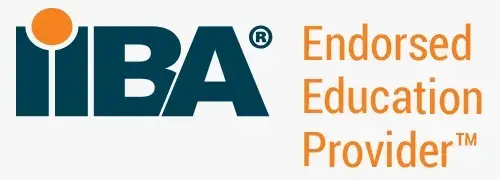Are you a Business Analyst aspirant but would like to become a Business Analyst? Then, you have reached the right place. This is a comprehensive step-by-step guide on – How to become a Business Analyst?
If you have a passion for solving business problems and helping businesses achieve their business objectives, Business analyst is the ideal profile for you. The good news is that your background is not a barrier. You don’t need to have a technical background to become a Business Analyst.
Are you ready to embark on a dynamic and rewarding career path, let's get started!
Who is a Business Analyst?
Business Analyst works as an intermediary between the business and the technology teams in a software project. BAs interact with the business teams to understand the business requirements and then develop detailed specifications to help the technology team develop the software application.
A business analyst is part of a project team which comprises programmers, and testers and is led by a project management professional. A typical project team structure is as shown below:
![Team-structure]()
Skills needed to become a Business Analyst
Now the question is - What do you need to be a business analyst? or to be able to perform your role well? There are several skills needed to become a BA.
Some of them are needed at the Entry-Level and some are needed as you grow in the role. Functional knowledge is one that is something which is not mandatory at the entry level. We, at Techcanvass, have developed the CRAFT framework to group the skills of a Business Analyst.
![Skills-Framework]()
Business Analyst Skills Framework (CRAFT)
CRAFT framework identifies four key categories of skills for a business analyst to succeed. These four categories are:
- Soft Skills
- Core Business Analysis Skills
- Domain Knowledge
- Functional Testing Skills
Let’s understand the skills in detail.
1. Soft Skills
A business analyst works closely with the stakeholders. BA elicits and confirms the requirements with the business users. BA also communicates the requirements to the technology team.
The soft skills needed to perform these tasks effectively, a BA needs to be good at:
- Interaction skills
- Presentation skills
- Communication skills
2. Core BA Skills
Then come your core BA skills - the fundamental skills of a business analyst. You can call them technical skills as here you need to learn skills related to requirements elicitation, analysis and modelling.
The top and trending skills in this category are:
- Elicitation techniques like Interviews etc.
- User Stories and Use cases
- Process Analysis and Modelling
- Writing Requirements
- Verification and Validation
- Agile and Waterfall approaches etc
Business analysis tools also play an important role in a Business analyst’s career. Tools provide an efficient way to create visual diagrams. Some of the tools, which need to be learnt are
- MS-Visio or Draw.io for UML diagrams
- Pencil or Proto.io for prototyping
- Jira for requirements management
3. Functional Knowledge
Functional knowledge is not necessarily an entry-level skill but you have to pick it up at some point in time in your business analysis career. It refers to the knowledge of the industry and the business as a whole.
To illustrate, suppose you are involved in a banking project. It is essential to have a comprehensive understanding of the fundamental terminologies, concepts, and processes. Possessing functional knowledge can enable you, as a business analyst, to comprehend the project requirements more effectively, resulting in better outcomes.
4. Functional Testing
A business analyst has the responsibility to validate the software before it is given to the customer for User Acceptance Testing (UAT). For this, you need to have the ability to test the software from overall functionality perspective.
For example, as a business analyst you need to check if money is actually getting transferred when a bank customer uses the 'funds transfer function’ in a banking software.
Techcanvass offers domain training courses that you can take advantage of to enhance your skills.
Who can become a Business Analyst?
Can you become a business analyst if you are from a non-IT background like sales, operations, travel, finance etc? The good news is that you can become a Business Analyst even if you are not an IT professional. The IT industry does not discriminate against any background as far as the business analyst role is concerned.
We have helped professionals from diverse backgrounds in achieving their goals and becoming business analysts. Here are some examples:
![Diverse-Backgrounds]()
The business analysts are employed by all the IT companies and multi-national corporations (MNCs).Some of the companies where business analysts are employed are:
![Companies]()
Roadmap to becoming a Business Analyst
Here are the steps you need to become a business analyst. Steps are similar for IT as well as non-IT professionals.
Note: This article is based on my book How to Become a Business Analyst: With Business analysis basics tutorial available on Amazon.
![Roadmap-to-BA]()
Step 1: Start with knowing about the role and skills of a Business Analyst
It’s a good idea to do your own research and understand the role of the business analyst. This will help you in assessing if you have the aptitude for it. For example, if you have a technical bent of mind, this is not a suitable profile for you. You should consider the Data Analyst profile.
The next step is to learn about the skills needed to become a business analyst. We have discussed these skills in the fourth section of this article.
Step 2: Conduct skills gap analysis
You need to evaluate your skills against the required skills for an entry-level Business Analyst. Assess your current skills, and if these match with the required skills.
For example, if you are a sales professional, you will be good at customer handling and interactions. These skills are relevant for the business analyst profile as well. We call these skills “Carry Forward” Skills.
Create a simple document to identify the gaps in your skills so that you can plan the approach to acquiring the skills. Please note that soft skills and hard skills will need different acquisition strategies.
Step 3: Plan to upgrade your skills
Once you have completed the skills gap analysis, you would know the skills you need to acquire. Now it’s time to determine the approach you would like to take to acquire these. What do you need to consider?
- Your work schedule: How many hours you can put in every week/weekend? For example, live online or offline training may require you to invest 4-6 hours on the weekend and a few additional hours during the week.
- Your learning approach: What works best for you? Do you like a classroom program? Or you can manage with a self-learning course?
- Overall time frame: If you have a pressing reason to quit what you are doing, you need to spend more time learning. Else you can pace it as per your work schedule.
- Soft Skills vs Hard Skills: Do you need to upgrade on the soft skills as well as hard skills? If yes, then you need to plan that as well. There are several soft skills training programs to help you learn.
Step 4: Consider getting certified in your plan
Do consider a certification in your plan because it will help you in getting shortlisted for job interviews. The certification provides employers confidence that you have business analysis competencies. IIBA ECBA Certification is a good choice for you.
If you are considering ECBA Certification, here are the things you must consider:
- ECBA Exam is based on Business Analysis Body of Knowledge (BABOK) v3
- The syllabus for ECBA Exam – You don’t need to study all the chapters from BABOK for ECBA Exam.
For more details, read our blog article - ECBA Certification and preparation strategy
Step 5: Complete training and crack ECBA Exam
You can prepare for the certification as you are going through the course. This way you can optimize the timeframe. If you are short of time, give yourself extra time for preparation. Certification exams require some preparation. In the case of the IIBA ECBA Exam, you must do the following:
- Go through BABOK v3
- Practice with chapter-wise questions
- Revise BABOK with the help of answers and explanations
- Target 70% in the practice tests
- Practice with full-length tests (Take at least 2-3 such tests)
Step 6: Update your resume and upload it on the job portal
Now, you have learnt the business analysis skills and are ECBA Certified, it’s time to prepare for the job interviews. Preparing for a job interview starts with updating your resume and making it suitable for the position, you are applying for.
Updating your resume means:
- Positioning yourself for the business analyst role
- Showcase your business analysis skills
- Mention your certification
- Add the right keywords relevant to the role
- Include scenarios and projects from previous employment, if any, relevant to the business analyst role
Once your resume is ready, upload it to the job portals popular in your country.
Step 7: Search for jobs
Don’t just wait for a call from a company. Search for the job yourself. It will help you get interview calls quickly.
However, searching for an entry-level business analyst job can be tricky. A typical search on “Business Analyst” may result in listings with the following:
- Every listing needs 1 year or more experience
- Listings need programming language knowledge like Python, R etc
- Listing needs knowledge of tools like Tableau, Power Builder etc.
It means you are not searching for it right. I have created a video to help you with the right way to search for entry-level business analyst jobs.
Step 8: Prepare for the interviews
Cracking a job interview is competitive as you just have 30-40 minutes to impress the interviewer (s). Success in an interview depends on two factors:
- Your displayed confidence (No matter how nervous you are)
- How well you can answer a question
For some of you, it's easy but it may not be easy for the majority. So you need to practice or use dry runs.
A dry run is used to refer to trials before the actual go-live day. You should also use a dry run of interviews. Use a couple of interviews as dry runs. Use the experience to assess your preparedness.
In this book, you will find the most asked or common interview questions that you might be asked in your interview. You can get instant access to the book, where you can enjoy the answers written by industry experts.
What's next
You don't need to have a technical background to become a Business analyst. What you need is a structured approach as mentioned above. Our ECBA Certification Training is a well-designed course to help you become a Business Analyst as well as prepare for ECBA Exam.
![ECBA-Certification-Training]()



